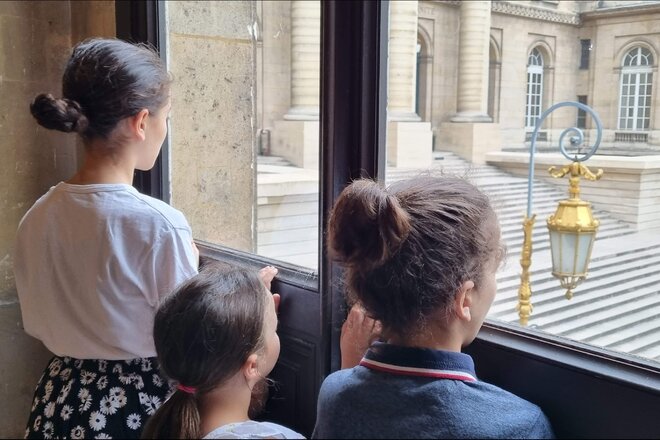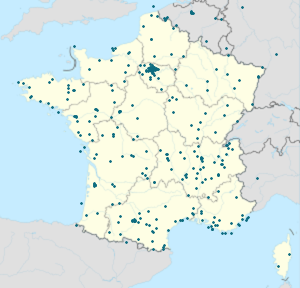Collecte terminée
On September 14, 2023, the European Court of Human Rights (ECHR) rejected Kamel Daoudi's application, filed five years earlier, for the lifting of his fifteen-year long house arrest.
It decided that it could not rule on the merits of the case (violations of the right to private and family life and the right to liberty perpetrated by the French state) until Kamel had exhausted all domestic remedies in France. Kamel has always sought legal recognition of his rights. However, for the past fifteen years, Kamel Daoudi, his wife and their four children have had their simple request to resume normal family life rejected by the French courts.
The ECHR thus represented the "last legal hope" for an entire family: the blow was too hard for Sandra, his wife, mother of their four children and a school teacher, who, in an ultimate act of resistance, went on hunger and thirst strike in the wake of such a cruel decision1.
Sandra and their four children share Kamel's experience, the social and psychological consequences of this deprivation of freedom. Since 23 April 2008, Kamel Daoudi has reported to his local police station several times a day, is obliged to stay within the perimeter of the commune imposed by the state, and observes a night-time curfew between 9pm and 7am. In the event of any breach, however minor, he faces up to three years in prison2. Since 2017, he has been forcibly relocated several hundred kilometres away from his family home, where his wife and their four children live.
Under these conditions, the Ministry of the Interior prevents him from working and taking part in the family’s everyday routine. As a result, his wife has to bear the financial and mental burden of the entire family.
When his wife and children are able to visit him, they share with him, physically and mentally, his daily life as an individual under house arrest. This situation leads to mental exhaustion for the whole family, reinforced by the harassment, intimidation, bullying, remarks and suspicious looks that are part of their daily life as a family under house arrest.
What have they done to deserve this? The answer can be summed up in three words. They did nothing.
Let's go back in time. In 2001, Kamel Daoudi was arrested and convicted of "criminal association in connection with a planned terrorist undertaking". He has always denied it, and the courts have acknowledged that there was no proof of an attack, apart from the "confession" of a co-accused, extracted under torture in the United Arab Emirates.
Stripped of his French nationality and sentenced to a six-year-long imprisonment and a ban on French territory, he served his full sentence. His planned return to Algeria, a country to which he has no ties except his nationality, was prohibited in 2009 by the ECHR in view of the risk of cruel, inhuman, and degrading treatment he would face there.
Having lived in France since the age of 5, and having acquired French nationality through naturalisation, which he was deprived of on May 27, 2002, while his case was being examined, Kamel Daoudi has since found himself relegated to a no-man's-land: at once banned from French territory and prevented from expulsion to Algeria; at once released from prison and deprived of his freedom to travel, to work, to live with his family, to resume a normal life. Kamel Daoudi has been living in a state of social quarantine for 15 years.
This situation is made possible first and foremost by French legislation, which allows the State to place a foreigner under indefinite house arrest, pending deportation3.
In a state governed by the rule of law, since it is impossible to "prove one's innocence", it is up to the justice system to establish the guilt of the accused. In Kamel Daoudi's case, it's the other way around: it's up to him to prove that he's not dangerous.
The ECHR's decision, cruel as it is, has one virtue: it indicates that the primary responsibility for this situation, unworthy of a state governed by the rule of law, lies with the highest French authorities, first and foremost the Ministers of the Interior and Justice.
Kamel and Sandra have only one demand: to resume a normal life, and offer their children the presence of a father.
1Read his article explaining the reasons for her action https://blogs.mediapart.fr/kamel-daoudi/blog/180923/non-epuisement-des-recours-vs-epuisement-de-ma-femme
2It's happened twice before. In 2009, accompanying his wife to the maternity ward in a neighbouring town, he was arrested and jailed for several months. In 2020, for being 25 minutes late for his curfew, he was again sentenced to 6 months in prison. https://www.amnesty.fr/actualites/kamel-daoudi-acharnement-judiciaire-un-an-de-prison
3In accordance with article 4 of the CESEDA (the French law governing the entry and residence of foreigners)
4https://www.ohchr.org/en/press-releases/2018/05/preliminary-findings-visit-un-special-rapporteur-promotion-and-protection
Raison
Kamel and Sandra have only one demand: to resume a normal life, and offer their children the presence of a father.
Lien vers la pétition
Cette pétition a été traduite dans les langues suivantes
-
Cher signataire, chère signataire,
Nous vous remercions d'avoir signé cette pétition.
Si ce n'est déjà fait, nous vous invitons à la partager auprès de vos connaissances et amis afin qu'elle puisse atteindre le premier palier des 500 signataires. Chaque signature compte.
Bien à vous et à bientôt. -

L’assignation à résidence à perpétuité subie par Kamel, Sandra, et leurs quatre enfants doit être levée
à 31/10/2023 -

31 OCTOBRE 2023 – TRIBUNE COLLECTIVE “LEVEZ L’ASSIGNATION À RÉSIDENCE PERPÉTUELLE DE KAMEL DAOUDI POUR LUI ET SA FAMILLE”
à 31/10/2023
Débat
Pas encore un argument CONTRA.

